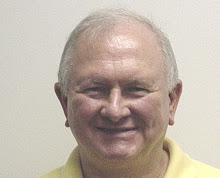Our wonderful Republic (not a Democracy, regardless of what dictionary.com says. ) was founded by some really smart guys. They were not, of course, saints. They did, however, recognize the fallibility of humans. We are a flawed people. Because they rightly discerned the nature of man, they invented a system of government with checks and balances and wrote the Constitution to limit the power of the Federal government. For my purposes, I will refer to the King’s power as statism and the people’s power as anarchy (Democracy has been defined as two wolves and a lamb voting on what is for dinner). They strove to seek a balance between the two. They envisioned the rule of law rather than the rule of a person. The ideal was that certain “truths” were “self-evident” as put forth in the Declaration of independence. This new experiment would balance the needs of the minority as well as the majority, because the law was supreme.
The constitution outlines three branches of government, taking the king’s legislative, executive, and judicial powers and spreading them around. Each branch of government was to be suspicious of the other branches. The Congress was to have two houses, one in which all states were equal (Senate), and one in which the states with larger populations had a larger vote (House of Representatives). Originally Senators were to be chosen by the state legislatures (Article I Section 3), later that was changed (17th Amendment) to require direct elections by the people. Because slavery was a contentious issue and because the less populous states feared that states with large slave holdings might have undue influence in the House, they settled on an enumeration that include three-fifths of a person for each slave held. There is a general misunderstanding today about that three-fifths clause, which I will probably have Dave and Blarney discuss in the future.
But the point of this article is that each branch then was free to hire people to assist them. The President has a staff, Congress has staff people and the supreme court has numerous law clerks. The executive branch is the one most likely to grow, but Congress can commission studies and offices for itself. Let’s say that we decide to eliminate poverty, or maybe reduce our dependence on foreign oil. We could have a “War on Poverty” or create a “Department of Energy”. Yeah, that’s the ticket. The people in those areas would be hired to solve those problems. We could throw money at the problem and create large executive departments filled with people who are charged with solving the problem.
Oh, wait. We already did. And how is that working out? Not surprisingly, neither problem (poverty or dependence on foreign oil) has been solved in spite of armies of people and billions of dollars attacking the problems. Not surprisingly, you say? Indeed. It is Basic Economics. Once a federal agency is created, it takes on a life of its own.. If they ever solve the problem, they will be out of a job. It takes a strong character to cut out one’s own job. Not gonna happen.
And that is why governments never shrink.

2 comments:
And by extension, why taxes continue to proliferate... :-(
Rick,
Amazingly simple and concisely presented! Excellent my good man.
Which suggests BTW, that we need to elect a dragon-slayer to cut the many-headed beast down to size.
(:D) Best regards
Post a Comment